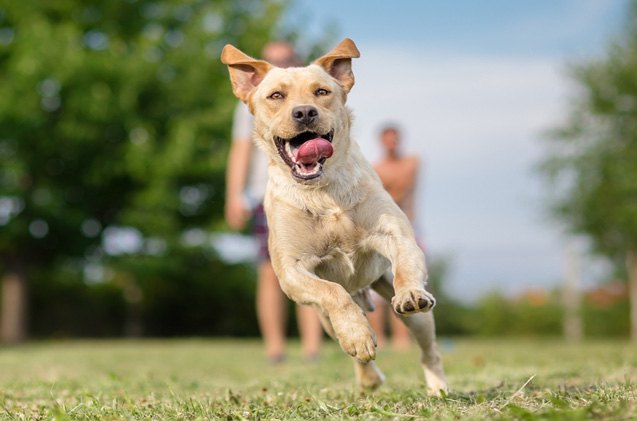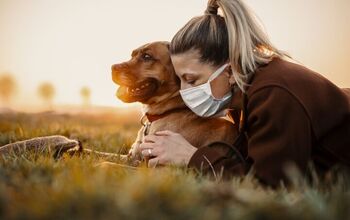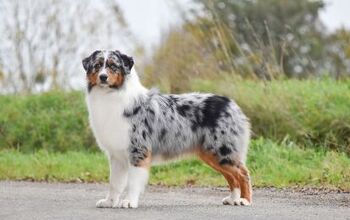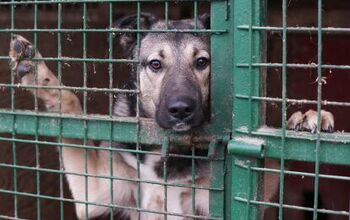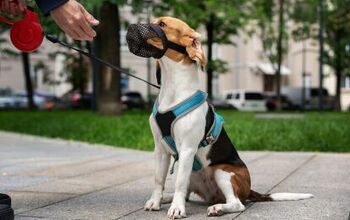What Are the 7 Most Common Musculoskeletal Issues in Dogs?

Musculoskeletal problems are some of the most common health problems seen in dogs – especially for large and giant breeds. These conditions can affect any of the dog’s bones or joints, though some conditions are more common than others. Keep reading to learn about the 7 most common musculoskeletal issues in dogs.
- Degeneration of the Shoulders
In a dog, the shoulder joint is a ball-and-socket joint in which a ligament connects two bones at the joint – conditions affecting this joint are some of the most common causes for lameness in dogs. Symptoms of shoulder degeneration in dogs may include decreased muscle mass and chronic lameness that worsens with activity. It is usually caused by the abnormal development of bone and cartilage and it usually presents between 3 and 7 years of age.
Related: All About Elbow Dysplasia in Dogs
- Hypertrophic Dog Arthritis
Also known as hypertrophic osteodystrophy, hypertrophic arthritis in dogs most commonly affects large and giant breeds – you may know of it as “growing pains”. The origins of the disease are unknown which, unfortunately, makes treatment a little tricky. Treatments for this condition are usually supportive in nature, including things like anti-inflammatories and painkillers.
- Knee Dysplasia
More commonly known as patellar luxation, this is a condition in which the kneecap slips out of place in the joint. Though knee dysplasia may not immediately cause pain, repeated dislocation can lead to arthritis which can become painful. Symptoms may include abnormal hind limb movement or a skipping gait which may progress to lameness over time. Medical treatment is typically ineffective but surgery is only recommended for severe cases.
Related: What Is Hip Dysplasia In Dogs?
- Osteochondrosis
Osteochondrosis typically affects the shoulder joint in dogs and it is most commonly seen in large and giant breeds. This condition often manifests in the form of a lesion that grows on the humeral head, causing the cartilage to thicken abnormally which may lead to degeneration. Causes for this condition may be genetically linked, though rapid growth and nutrient deficiencies may contribute as well. Symptoms usually develop between 4 and 8 months of age and, in many cases, surgical intervention is the only treatment option.
- Osteoarthritis
Also known as degenerative joint disease (DJD), osteoarthritis is the progressive deterioration of the cartilage around the joints. There is no known cause for osteoarthritis for primary cases, though secondary DJD can be caused by abnormal development, dislocation of the knee or shoulder, and abnormal development of the cartilage. Symptoms may include stiffness, reduced activity, or lameness and treatment is usually aimed at alleviating symptoms and slowing the progression.
- Elbow Dysplasia
Commonly seen in large-breed puppies who grow too fast, elbow dysplasia is actually a syndrome that may include elbow incongruity, osteochondrosis, and fragmentation of the coronoid process. In other words, it is characterized by abnormal growth or anatomy in the elbow. Symptoms may include an obvious limp or inability to put weight on the leg. Treatment may involve anti-inflammatory drugs and, in severe cases, surgery.
- Hip Dysplasia
One of the most common musculoskeletal disorders in dogs – especially large and giant breeds – hip dysplasia occurs when the femoral head slips out of its place in the hip socket. This condition may cause joint laxity in the early stages but can progress to joint degeneration and osteoarthritis in the later stages. It is often genetically inherited, though it can be exacerbated by obesity and nutritional deficiencies.
If your dog starts to display symptoms of any of these conditions, do not delay in contacting your veterinarian. For some of these diseases, symptoms do not present until the condition is advanced so your options for treatment may already be limited.

Kate Barrington is the loving owner of two cats (Bagel and Munchkin) and a noisy herd of guinea pigs. Having grown up with golden retrievers, Kate has a great deal of experience with dogs but labels herself a lover of all pets. Having received a Bachelor's degree in English, Kate has combined her love for pets and her passion for writing to create her own freelance writing business, specializing in the pet niche.
More by Kate Barrington



